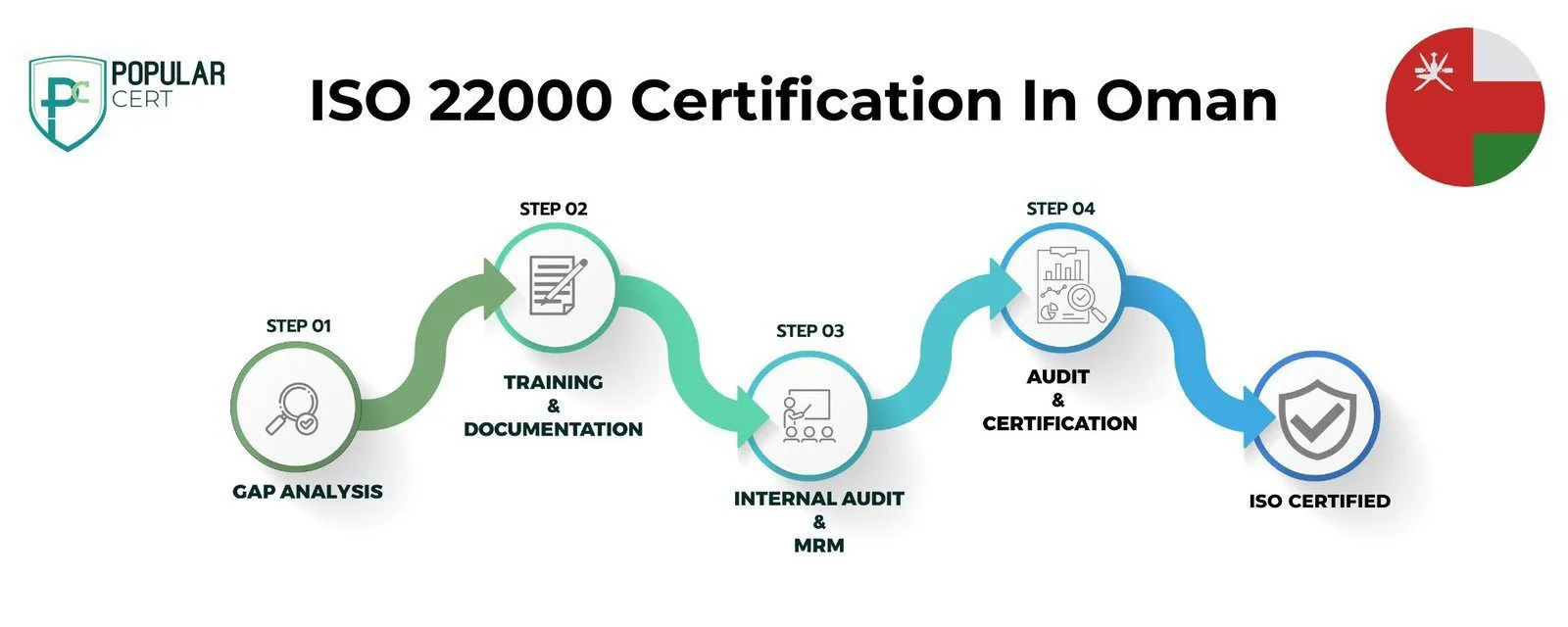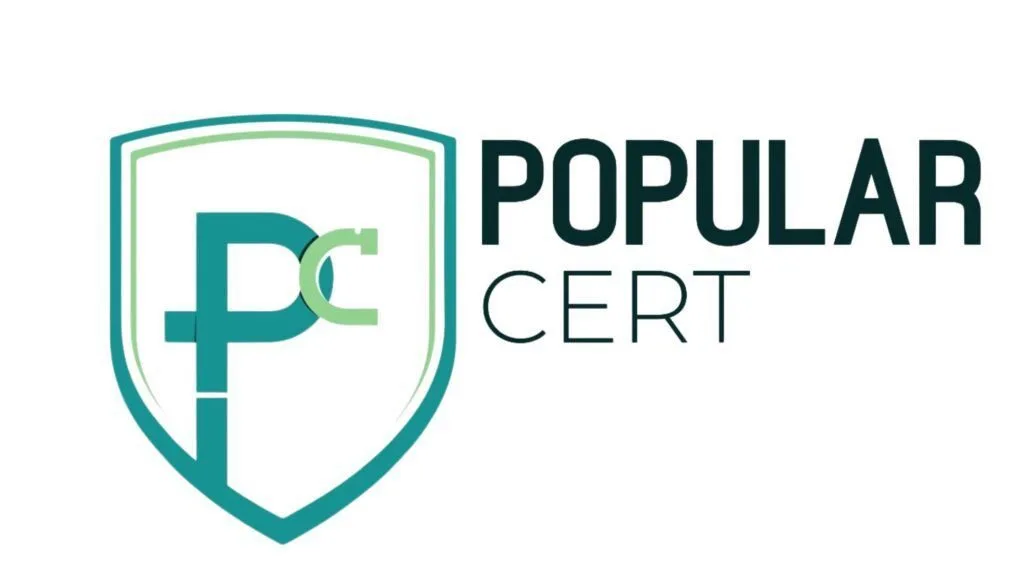ISO 22000 CERTIFICATION iN OMAN
Get Free Consultation
ISO 22000 Certification in Oman is a globally recognized standard that ensures food safety across the entire supply chain—from farm to fork. It helps food manufacturers, processors, distributors, and retailers in Oman implement a robust Food Safety Management System (FSMS) that complies with international hygiene and hazard control standards.
By achieving ISO 22000 certification, organizations demonstrate their commitment to delivering safe, high-quality food products, meeting both regulatory and customer expectations. It enhances operational efficiency, minimizes food safety risks, and builds trust with consumers, partners, and regulatory authorities.
Whether you’re a local food business or an international exporter based in Oman, ISO 22000 improves market access, supports compliance with global food safety laws, and strengthens your brand’s credibility in competitive markets.
What is ISO 22000 Certification?
ISO 22000 Certification is an internationally recognized standard that focuses on food safety management systems. It ensures that food is safe for consumption at every step of the supply chain—from farm to fork.
This certification helps organizations identify and control food safety hazards, improve hygiene practices, and meet both local and international food safety regulations. ISO 22000 is suitable for any business involved in the food industry, including farmers, processors, manufacturers, packagers, distributors, retailers, and even restaurants.
By getting ISO 22000 certified, companies show their commitment to delivering safe, high-quality food products, which builds consumer trust, boosts business reputation, and opens up new market opportunities.
Why need ISO 22000 Food Safety Management Systems (FSMS)?
ISO 22000 is global standard for Food Safety Management Systems (FSMS). It specifies the requirements for an organization to make sure food safety is implemented throughout food supply chain. ISO 22000 provides guidelines to help businesses identify and control food safety hazards, from food production to consumption.
How to Get ISO 22000 Certification in Oman?

Process to Get ISO 22000 Certification In Oman
Consultation and Gap Analysis
Our consultants evaluate your existing food safety procedures and help you in establishing a thorough strategy to put the ISO 22000 standard in place. We assess your current operations against the requirements of ISO 22000 standard and identify the areas where some improvements or changes are necessary to fulfill the criteria.
Planning, Documentation, and Policy Development
We assist in the preparation and implementation of the necessary documents, policies and procedures which are required as per the ISO 22000 standard. We then integrate these changes into your organization’s existing framework to achieve the food safety requirements as per the ISO 22000 standard.
Training and Awareness
we help your employees understand why food safety is important and teach them what the ISO 22000 standard requires.
Internal Audit and Management Review
Our auditors perform an internal audit, which is similar to the final audit conducted by the third party to issue the certification. This helps to evaluate the implemented system’s efficiency and to identify any flaws in the process. A meeting between the ISO consultants and the top-management of your organization.
External Certification Audit and Certification
It shall be coordinated by us (the ISO consultants) through the accredited certification bodies. After the external certification audit is successful, we help you in obtaining the ISO certification. This certificate is usually valid for 3 years, provided that an annual surveillance is done to make sure that your management system conforms to the ISO 22000 standard requirements.
Types Of ISO Certification In Oman
- ISO certification in Oman
- ISO 9001 Certification
- ISO 14001 Certification
- ISO 45001 Certification
- ISO 22000 Certification
- ISO 27001 Certification
- ISO 17025 Certification
- ISO 13485 Certification
- CE Mark Certification
- ISO 20000-1 Certification
- ISO 22301 Certification
- ISO 41001 Certification
- ISO 31000 Certification
- ISO 50001 Certification
- GMP Certification
- Halal Certification
- SOC-1 Certification
- SOC-2 Certification
Get Free Consultation
Our Clients


















Benefits of ISO 22000 Certification in Oman
- Improved health and safety : Minimizing food risks leads to better health and safety outcomes for customers, other users, employees and others who may come into contact with food.
- Increased Customers' Confidence : Having an FSMS helps you reliably deliver products that meet customer expectations.
- Help meeting regulatory requirements : Compliance with regulatory requirements is required to achieve certification to ISO 22000. Having an FSMS in place can help companies meet these requirements and understand how they impact the organization and its customers.
- Improved response to risks : Having an FSMS in place can help organizations respond more quickly and efficiently to issues that may compromise food safety, helping them stop potential contamination before it occurs.
- Reduced investigation time :If contamination does occur, an FSMS helps organizations reduce the time it takes to investigate any food safety breaches, solving the problem faster.
Which Industries Need ISO 22000 Certification in Oman?
- Food and Beverage Manufacturers(تصنيع الأغذية): This is perhaps the most obvious category. All companies involved in the processing, production, and packaging of food and beverage products, including bakeries, dairies, meat processors, beverage producers, snack manufacturers, etc., need ISO 22000 to ensure the safety of their products.
- Restaurants and Catering Services(المطاعم والتموين): With a thriving hospitality sector and increasing tourism, restaurants, hotels, cafes, and catering companies in Oman are increasingly seeking ISO 22000 to demonstrate their commitment to food hygiene and safety for consumers.
- Retailers and Supermarkets: Businesses involved in the storage, handling, and sale of food products, such as supermarkets, grocery stores, and food retail chains, need ISO 22000 to manage food safety risks throughout their distribution and display.
- Agricultural Producers: Farms, agricultural producers, and livestock farms are at the beginning of the food chain. ISO 22000 or related standards like ISO/TS 22002-3 (for farming) help them manage food safety hazards from the primary production stage.
- Animal Feed Producers: ISO 22000 also extends to the production of animal feed, as the safety of animal food can directly impact the safety of food derived from animals (meat, milk, eggs). ISO/TS 22002-6 specifically addresses this.
Cost of ISO 22000 Certification in Oman
The cost of obtaining ISO 22000 differs for each organization. The standard applies to all industries regardless of any size, type or location. However, the certification is based on various factors such as:
The cost of ISO 22000 certification in Oman depends on several factors:
- Company Size: Larger companies may incur higher costs; PopularCert ensures cost efficiency.
- Scope of Certification: Multiple locations or processes can increase costs; PopularCert offers budget-friendly solutions.
- Existing Systems: Well-established processes reduce expenses; PopularCert ensures compliance with minimal adjustments.
- Consultant Support: Expert guidance by PopularCert ensures faster, cost-effective certification.
- Certification Body Fees: Costs vary; PopularCert helps select the most efficient option.
- Ongoing Maintenance: Includes audits and updates; PopularCert provides continuous support.
Why Choose PopularCert For ISO 22000 Certification in Oman?
PopularCert simplifies the ISO 22000 certification process making it smooth and stress-free. The expert team ensures businesses can stay focused on their objectives while easily meeting the required standards. With a customer-focused approach, Popularcert supports Omani businesses by offering:
1. Quick certification through simplified processes.
2. Customized solutions to meet specific requirements of various needs.
3. Continuous support to maintain compliance and standards.
By choosing PopularCert businesses not only achieve certification but also get the numerous advantages of ISO standards resulting in long-term success.
GET A FREE CONSULTATION NOW
FAQ
What is ISO 22000 and why is it important in Oman
ISO 22000 is a food safety standard for businesses in the global food chain which is used to specify the requirements for food safety management system where the organizations in the food chain need to exhibit their ability to control food safety hazards, in order to assure that food is secure at the time of human consumption. It is considered important in Oman as it ensures that people are consuming healthy food and also helps in upholding the organization’s reputation in the market.
What are the Benefits of ISO 22000 certification in Oman
The Food Safety Management System presented in ISO 22000 can help a business produce food products with better safety, reliably high quality, improve customer satisfaction, boost operational efficiency, manage risk and more. Like other types of ISO certification, ISO 22000 certification shows your company’s stakeholders that you prioritize food safety and effective management. With ISO 22000 certification, you may even be able to get more business, since many international companies will only work with ISO-certified partners.
Who Should Get ISO 22000 Certification in Oman?
ISO 22000 certification has the potential to benefit a wide array of businesses related to the food industry. Some of the organizations which can benefit from implementing ISO 22000 in Oman are as follows:
- Food manufacturing industry
- Food ingredients industry
- Food additives
- Food transportation
- Packing of food materials
- Selling of food (retail or wholesale)
- Serving prepared foods (Supermarkets or Hypermarkets)
- Production of food equipment
How Does ISO 22000 Certification Work in Oman?
To earn ISO 22000 certification, you will need to implement some prerequisites in order to fulfill the requirements to apply for the ISO 22000 certificate and successfully complete an Initial Certification Audit. After earning the initial certification, you will need to complete yearly surveillance audits and re-certification audits every three years to maintain your certification. The audits must be completed by an accredited third-party certification body. In addition, you must be able to prove that your FSMS has undergone a management review and a full cycle of internal audits before you can earn ISO 22000 certification.
